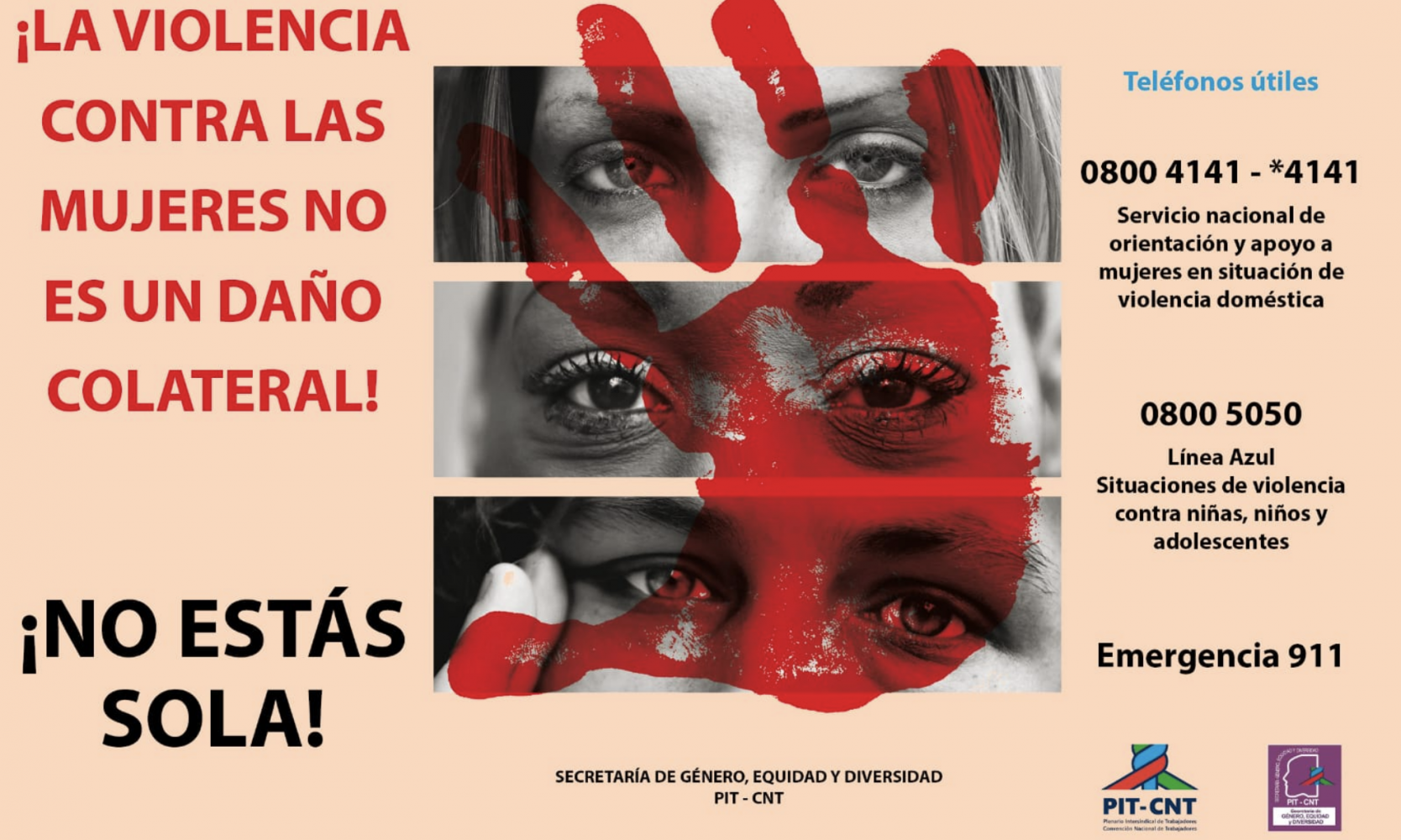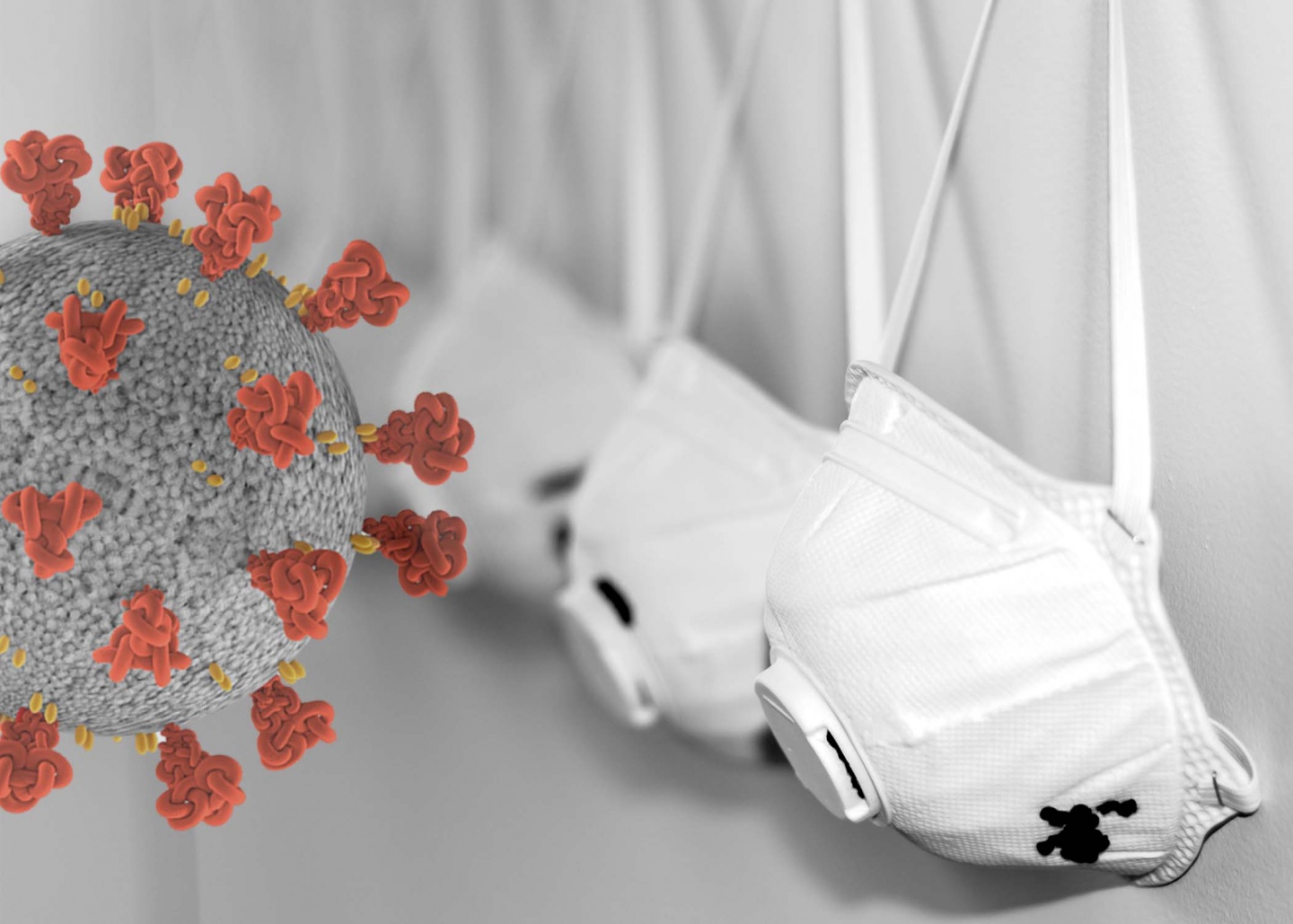9 April, 2020Due to persistent gender inequalities, women will be more exposed to the anticipated economic consequences of the pandemic. Governments, employers and unions must develop a gender-responsive approach to avoid reproducing or accentuating social and gender inequalities.
Protect the health and safety of women workers
Push employers to take necessary protective health and safety measures for their employees
Push governments to legislate the right to paid sick leave and free access to health care for all workers irrespective of their employment status
Ensure women representation in health and safety committees or other bodies at all levels that define measures to protect workers from Covid 19
Push for specific protection of pregnant women workers during the crisis
Urge governments to maintain access to reproductive health services and not to divert resources allocated to these life-saving services
In Indonesia, GARTEKS and SPN are fighting for the temporary closure of garment factories where majority of workers are women.
In Morocco, the UMT negotiated for an increased staff rotation in cabling factories to decrease the number of workers on site at the same time, as well as for masks, gloves and disinfectant.
In Japan, trade union confederation RENGO is promoting teleworking and changed commuting times for pregnant women to avoid the most crowded hours on public transport.
TUC is reminding pregnant workers of their employers' obligations for protecting their health during the Covid19 crisis: prevention and removal from exposure to risk measures for pregnant women; transfer to other employment with same remuneration and, if not possible, adjustment of working conditions and teleworking or leaves with full pay.
The current pandemic has disrupted access to sexual and reproductive health care services. UNFPA is calling for these services to be maintained to avoid an explosion of pre and post-natal mortality.
Concerned about women's increasingly limited access to reproductive and sexual health services during the Covid 19 crisis, the CGT has called for international action to guarantee access to contraception and prevent maternal and child mortality during this crisis.
Combating violence against women
Lobby governments to ratify Convention 190
Condemn all forms of gender-based violence and harassment, including domestic violence, publicize and circulate the hotline number for victims of domestic violence
Ensure that policies and measures against violence and harassment at work are put in place and implemented even during the Covid-19 crisis
Urge governments to increase resources allocated to the prevention of domestic violence and protection of victims, maintaining shelters and increasing their capacities if need be
UN denounces the rise of domestic violence with confinement due to pandemic. Victims of domestic violence, mainly women, find themselves trapped with their abusers.

In Uruguay unions have sent a strong message on their websites and social media: "Violence against women is not collateral damage! You are not alone!" advertising hotline numbers for victims.
In Italy, CGIL and UIL worked together to promote the establishment of special measures during the covid 19 crisis and after including a broad campaign to promote hotline number and disseminate information on protective measures for victims; the identification of new possible shelters; the extension to at least six months of leave for women victims of violence; the establishment of a fund aimed at ensuring the exit of women from the spiral of violence.
In Spain, the CO OO is urging the government to ratify the new ILO Convention 190 which provides for the mitigation of the impacts of domestic violence in the world of work. Recommendation 206, in connection with the new convention, provides, among others, leaves for victims of domestic violence; flexible working arrangements and temporary protection against dismissal for these victims, as well as raising awareness on domestic violence.
Maintain the income and protect the jobs of women workers
Conduct national tripartite or company /workplace level negotiations to guarantee the income of workers and to protect employment during the crisis
Negotiate measures at the global level with multinational companies to protect the jobs and incomes of workers in their supply chains
Extend access to unemployment benefits and insurance to precarious workers and workers in informal economy
Negotiate with governments for specific social protection and emergency support for vulnerable workers who do not benefit from existing social protection and safety net (workers in the informal economy; migrant workers…)
Negotiate with governments for the establishment of targeted support for low-income families, in particular for single-parent families, as well as for the temporary suspension of loan and mortgage repayments
Women make up the majority of the workforce in some of the supply chains of IndustriALL's sectors most affected by the crisis, like the garment sector.
In the garment industry, the situation is alarming. The drop in orders from major brands, the lockdown in many producing countries lead to the closure of thousands of factories and the temporary suspension furlough or dismissal of millions of women workers.
Many workers have not received any salary or allowance and do not benefit from any social safety net.
IndustriALL affiliates have managed to guarantee the income of workers like SACTWU in South Africa or Garteks and SPN in Indonesia. At a global level, IndustriALL has been negotiating with brands to take the necessary measures to pay workers' wages and allowances and protect jobs.
Globally, women workers make up the majority of precarious workers and workers in informal economy. In order to provide protection for precarious workers, UNIFOR has demanded that the federal government in Canada implement special emergency income assistance payments to vulnerable workers, including precarious workers, who would otherwise not receive employment insurance benefits.
In Morocco, the UMT has succeeded to negotiate measures to protect the jobs of outsourced female (and male) workers in cabling factories in auto sector by having these workers taking their annual leave rather than having their contracts ended.
SEWA has been supporting the most vulnerable informal women workers in India. In Gujarat, the organization distributes food, especially to migrant workers during the lockdown. The organization has asked the national ministry of labour for income support for the families of the informal economy workers to be able to sustain basic needs, Free Public Distribution System for Ration supply as long as the crisis last and six months amortization on repayment of all loans.
Flexible work arrangements and paid leaves for parents
Conduct national tripartite or company level/workplace level negotiations for flexible working arrangements (flexible working hours, teleworking), reduction in working time (with income maintenance) or paid leave for the respect of the right of all workers to make all necessary arrangements to care for their families during the crisis
Negotiate for alternative emergency childcare for parents who must continue to work
Call for a change in social norms and a more equitable distribution of housework and childcare between men and women
The closure of schools, as well as specific risks faced by elderly have an impact on women who are the main caregivers in families. The establishment of measures enabling workers and especially women to maintain their employment and income in this context is key. Many governments, after tripartite negotiations, have adopted measures to this end.
Develop gender responsive approach to address the crisis
Push governments and employers to collect gender-segregated data to analyze the impacts of Covid-19, and to develop short-term and long-term gender responsive approaches
Monitor trends in unemployment at the national level, as well as layoffs at the company level, to ensure that consequences of Covid-19 do not exacerbate existing inequalities in the world of work
The CC OO in Spain is monitoring the gender impact of measures addressing consequences of Covid-19 in its Miradas violetas (Purple perspectives).
